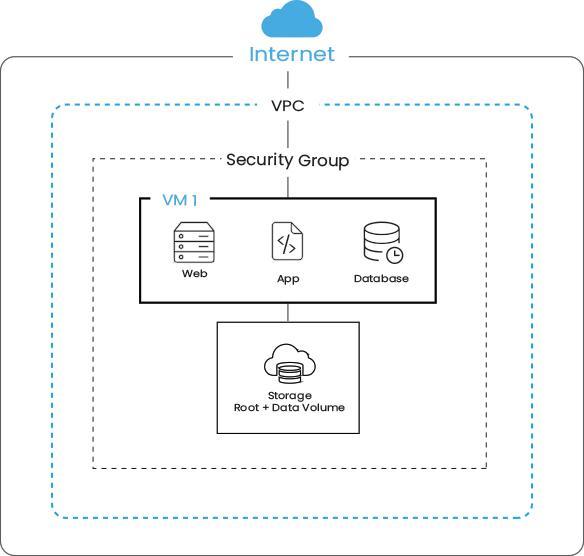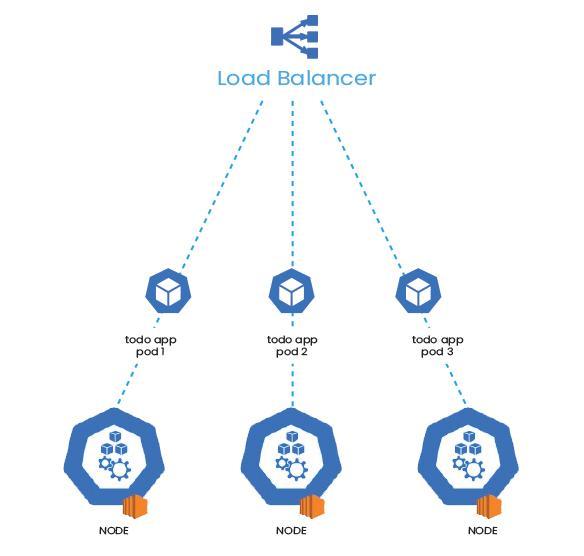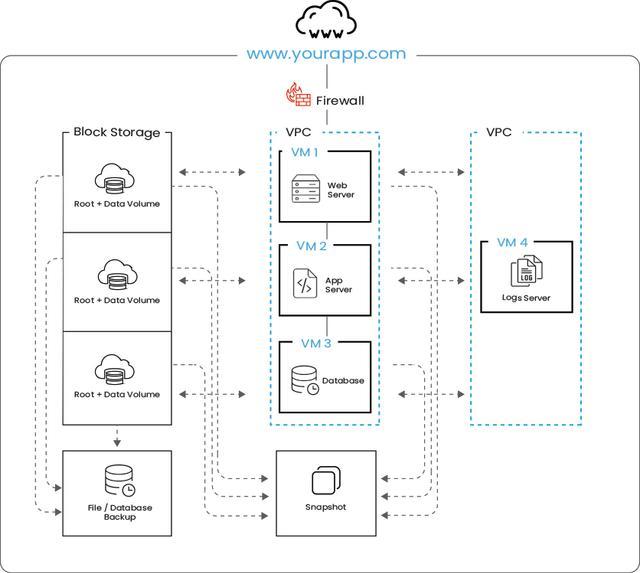All-Inclusive Managed Cloud Hosting Experience
Cloud solutions deployed with buzinessware are delivered as a fully managed experience including best-in-class architecture & configurations on cloud provider of choice
Setup, monitoring, ongoing management and 24/7 Priority Support are bundled as standard to deliver an optimised environment, engineered for scale, performance & security helping you focus on your business strategy rather than daily administrative tasks

Simple, all-inclusive solutions crafted for your business needs
Managed Cloud Web Hosting
We make cloud web hosting simple, reliable and cost-efficient with optimised CMS application of choice, best of breed configurations & fully managed infrastructure for WordPress, Linux, Windows websites etc
Managed Cloud Ecommerce Hosting
Run your Magento, WooCommerce or any online store with fully managed infrastructure, high level of security, enhanced performance, 24/7 technical support with all required tools to help you sell, scale & focus on growing your business
Managed Cloud Application Hosting
We provide 100% hands-free fully managed infrastructure, optimised performance, fine-tuned security & 24/7 real-time support for your PHP, Laravel, .Net, Java, ERP, CRM, HRMS, Accounting or any other custom software application
10,000+ Hppy Customers trust us
“We are working with buzinessware for 4-5 years as a white label reseller specially for VPS & Cloud Servers. With buzinessware, iQ Web quickly extended the reach of our modern commerce solutions to serve our global customer, helping us drive more than 80 percent of our business to the cloud and 31 percent growth in revenue.”
“I have signed up with buzinessware as a white label reseller 4 years ago, for last 4 years i never found any problem with them. I am happy with their service & support and so are my clients happy with me”
“We had a dream of starting our own business of domain, hosting, cloud, security products/services in Saudi Arabia region and we found buzinessware very helpful in making our dream into reality. We got complete white label storefront to sell online and a backend CRM from buzinessware to manage our client, order & billing operations smoothly”
“Buzinessware allowed us to grow our revenue significantly over the past 5 years by providing us domain, hosting, cloud services, SSL certificates etc.. with 24/7/365 technical support”
Sample deployment architectures
Purpose-built architecture frameworks to help accelerate your application delivery & reduce operational inefficiencies
Single Tier Architecture
Deploy your small applications that may not need to scale up to meet demand with cost-effective and easy to manage single tier architecture

Advantages
- Faster for a single user because communication with another system is not necessary
- No compatibility or Context switching issues are involved
- The cost of deployment is lower
n-Tier Architecture
Achieve faster development and application delivery with improved scalability, security and reliability
Advantages
- Scalability
- Data Integrity
- Reusability
- Reduced Distribution
- Improved Security
- Improved Availability
Containerized
Modernize your existing applications or deploy cloud native applications and improve application life-cycle management using containerization

Advantages
- Isolated environments
- Homogeneous environments
- Continuous integration including infrastructure
- Easy and Cost Efficient deployment of Microservices
- Portability
- Easier elasticity
- Heterogeneous deployments
All-inclusive Managed Experience
Solutions deployed with buzinessware are delivered with a fully managed experience including setup, configurations, monitoring, ongoing management and Priority Support as a standard with no additional charges to help you focus on your business strategy rather than daily administrative tasks
Cloud Playbook
Unlike traditional hosting, which is deployed on a single server, cloud hosting is deployed on a network of connected virtual and physical cloud servers on provider of choice ensuring greater flexibility and scalability for your application deployments
Compute
- Scalable Virtual Machines
- Virtual Private Servers
- Bare-metal Servers
- Containers [ Dockers]
- Managed Kubernetes Service
- Serverless Computing [AWS Lambda, AWS Fargate, Azure App Service]
Storage
- Block Storage
- Object Storage
- Container Registry
Networking
- Virtual Private Cloud (VPC)
- Next-gen Cloud Firewall
- Global Content Delivery Network (CDN)
- Anycast Domain Name System (DNS)
- Elastic Load Balancers
- IP’s
Security & Backup
- Cloud Snapshots
- Cloud Backup & DR
- Cloud Security & Performance
- Web Application Firewall (WAF)
- SSL Certificates
- Anti-Virus
- SIEM
Software & Licences
- Operating Systems (Windows Server, CenOS, Ubuntu, Debian, SUSE, RedHat)
- Databases (MSSQL, MySQL, Mongo DB, PostgreSQL, MariaDB, Percona)
- Control Panels (cPanel, Plesk)
Tools & Services
- Fully Managed Infrastructure
- Priority Support as Standard
- Professional Cloud Services
- Managed Databases
- SMTP Relay
- Monitoring
- API’s
